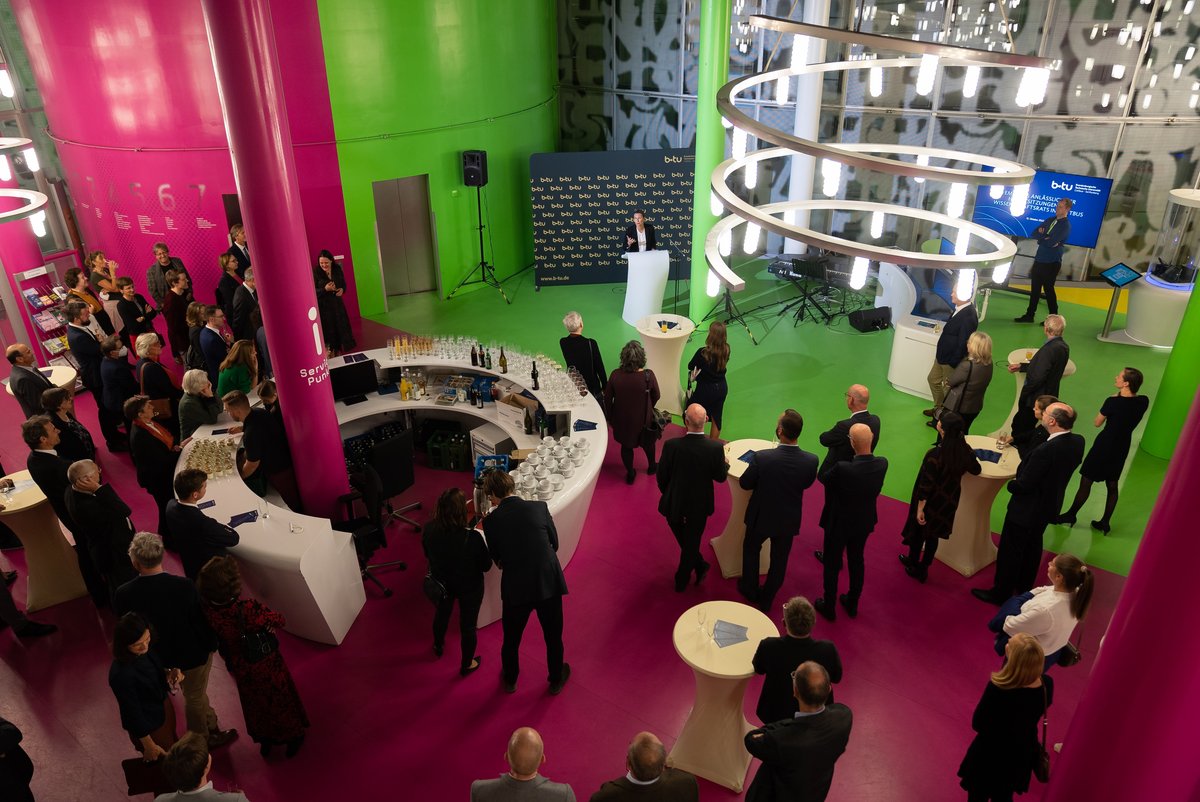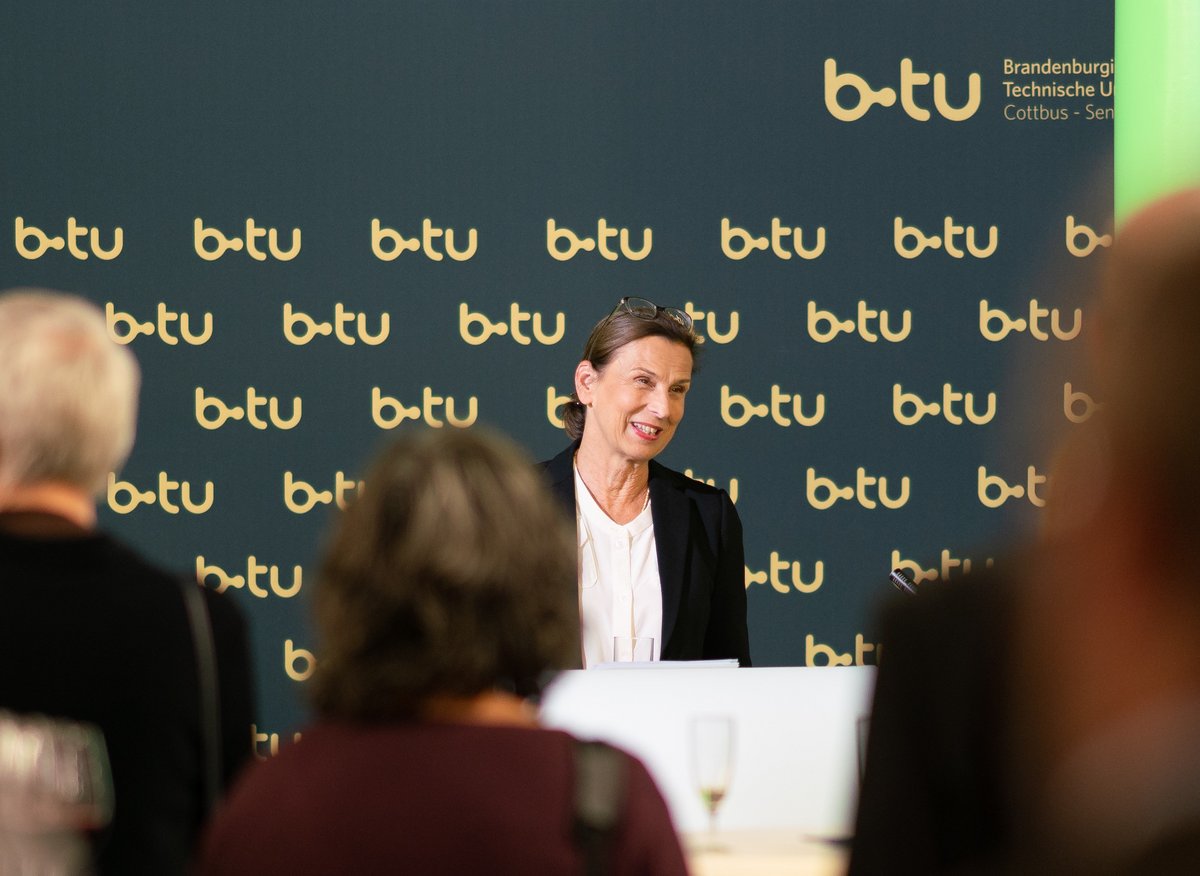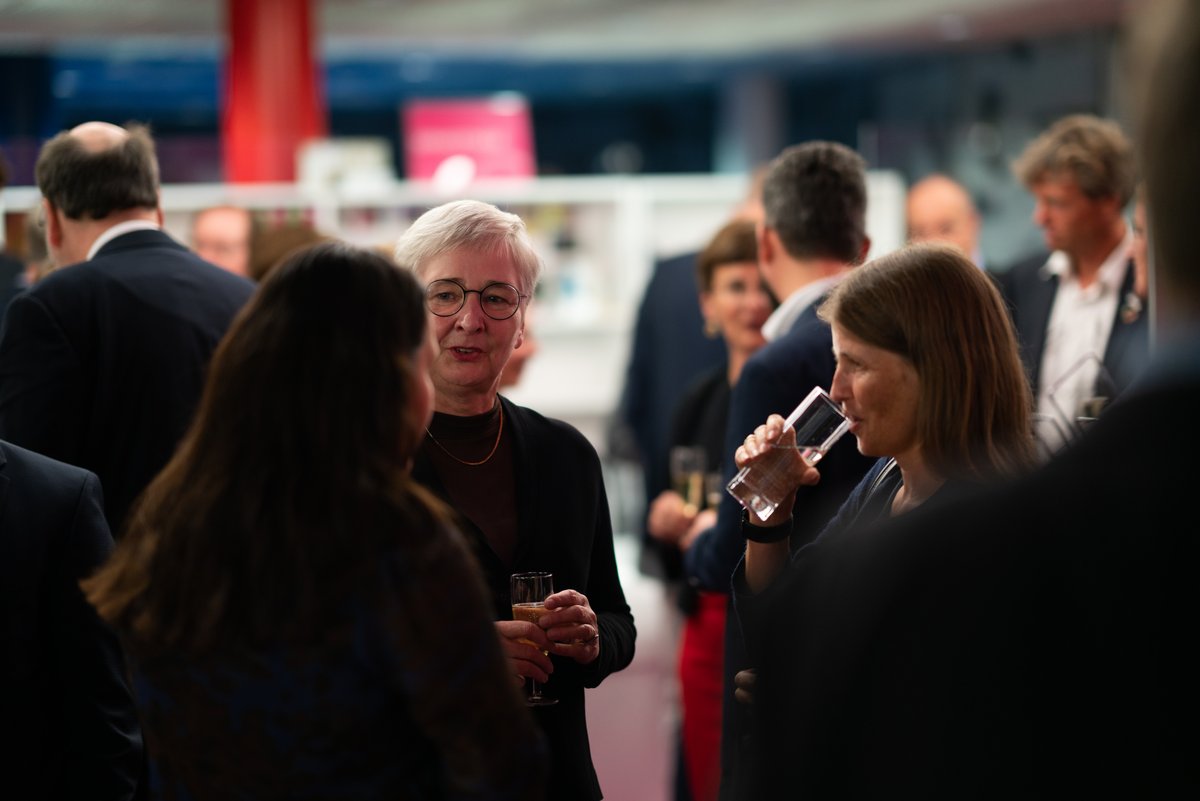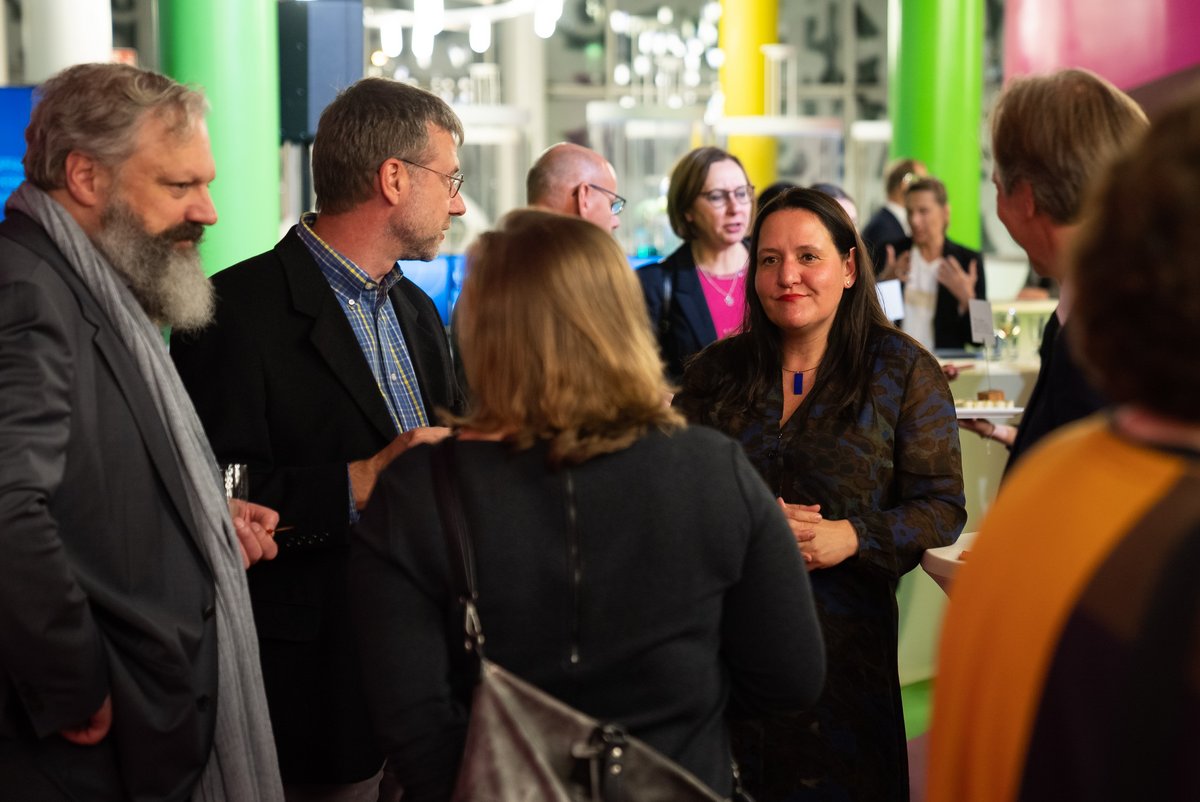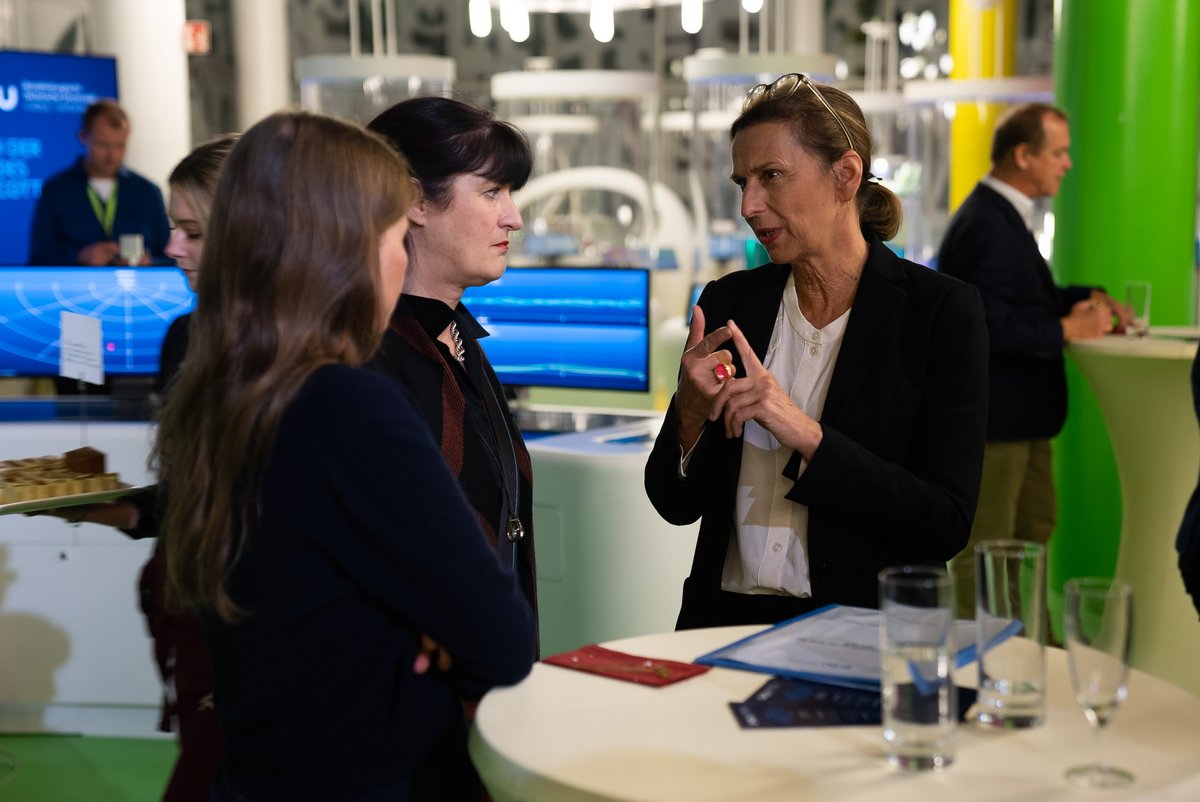BTU receives science council
The BTU is no stranger to the Science Council. In 2002, the first statement on the predecessor institution of the Brandenburg University of Technology Cottbus was adopted by the Science Council. In 2016, there was a statement on the newly founded BTU Cottbus-Senftenberg. Currently, the Science Council is evaluating Brandenburg's higher education system on behalf of the Brandenburg Ministry of Science. In addition, the body will assess the founding concept of a university medical center in Cottbus starting next year.
On the occasion of the current fall meetings, the BTU Presidential Board received the members of the Scientific Commission of the Science Council with its chairperson Prof. Dr. Dorothea Wagner, the chairperson of the Scientific Commission Prof. Dr. Anja Boßerhoff and the Secretary General Thomas May as well as Brandenburg's Minister of Science Dr. Manja Schüle in the futuristic architecture of the university's Information, Communication and Multimedia Center (IKMZ). The location was not chosen by chance: "The concept of this building can still be considered innovative and groundbreaking today. And it fits our university: open, ambitious, connecting, courageous and young, modern," said BTU President Prof. Dr. Gesine Grande in her welcoming speech. And she reported on her ambitious goal of turning Brandenburg's only technical university into the "MIT of Lusatia".
In the past two years, the BTU has made significant progress on this path: more than 30 joint appointments with Fraunhofer, Leibniz and Helmholtz institutes, the establishment of numerous non-university research institutions such as the two institutes of the German Aerospace Center and the Fraunhofer Institute for Energy Infrastructures and Geothermal Energy, as well as the founding of a joint graduate college with the Federal Institute for Materials Research. Immediately ahead is the establishment of the Lusatia Science Network, a scientific network that will initially include 13 non-university research institutions, federal institutes and initiatives. And last but not least, the prestigious Lusatia Science Park project, the establishment of which is being intensively pursued together with the city of Cottbus, WISTA Adlershof and the state of Brandenburg. The science and innovation park will bring lasting change not only to the BTU, but also to the city and the region; 200 scientific and business settlements are expected to create up to 10,000 jobs over the next ten years.
"The Science Council is convinced that science offers the best innovation potential for social and economic development that points to the future. Therefore, it welcomes the central role that science will play for structural change in this region," said the chairwoman of the Scientific Commission, Prof. Dr. Anja Boßerhoff, in her welcoming speech, during the BTU reception on Wednesday evening.
About the Science Council
The committee has been advising the federal and state governments since 1957 on issues relating to the further development of the higher education system in terms of content and structure, as well as the state funding of research institutions. With its recommendations, statements and position papers, the Wissenschaftsrat aims to help ensure that studying, teaching and research in Germany take place under the best possible conditions.
The Science Council is composed of the 32-member Scientific Commission and the 22-member Administrative Commission.
Press contacts
Ilka Seer Brandenburg University of Technology Cottbus-Senftenberg Press Officer / Head of Corporate Identity T +49 (0)355 69 3612 E ilka.seer(at)b-tu.de
Katharina Mader Science Council Communications and Public Relations T +49 221 3776-219 E mader(at)wissenschaftsrat.de

